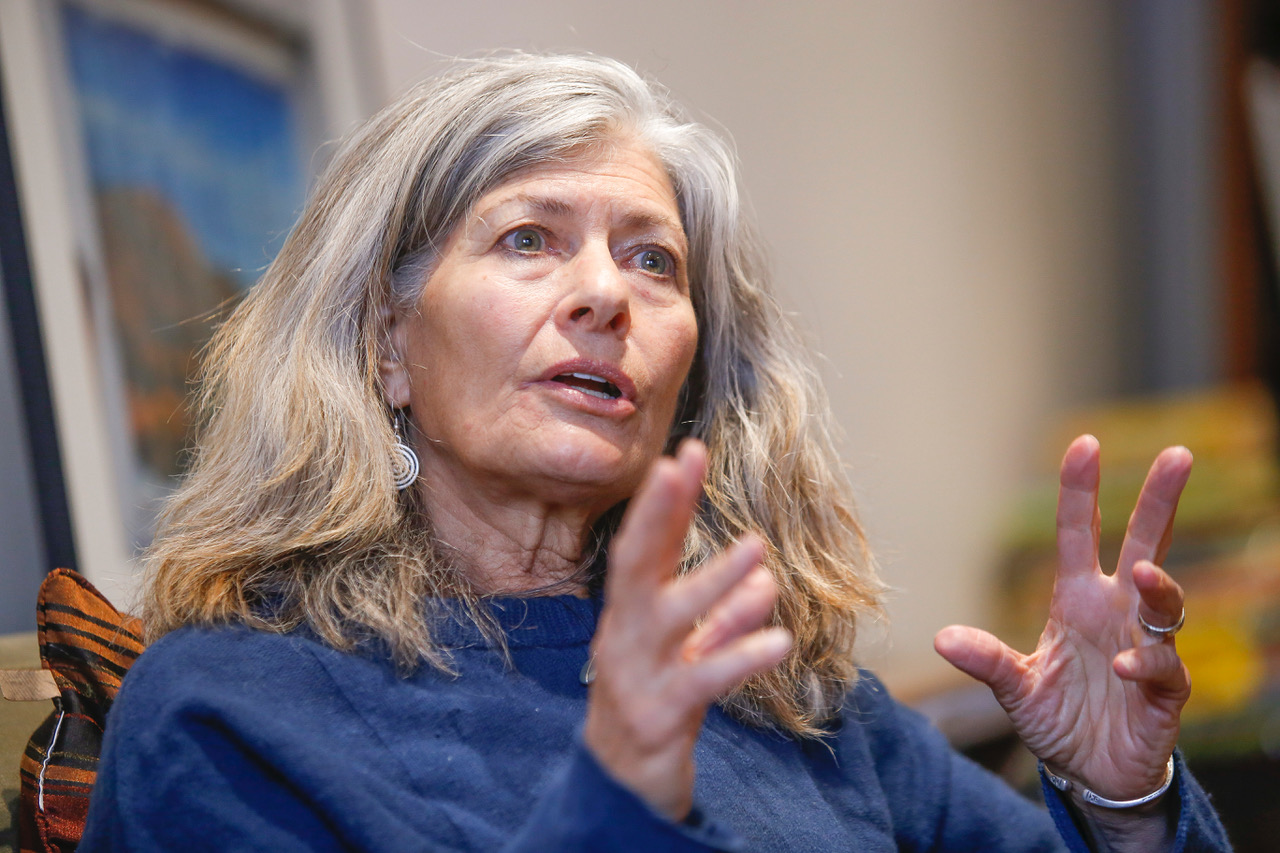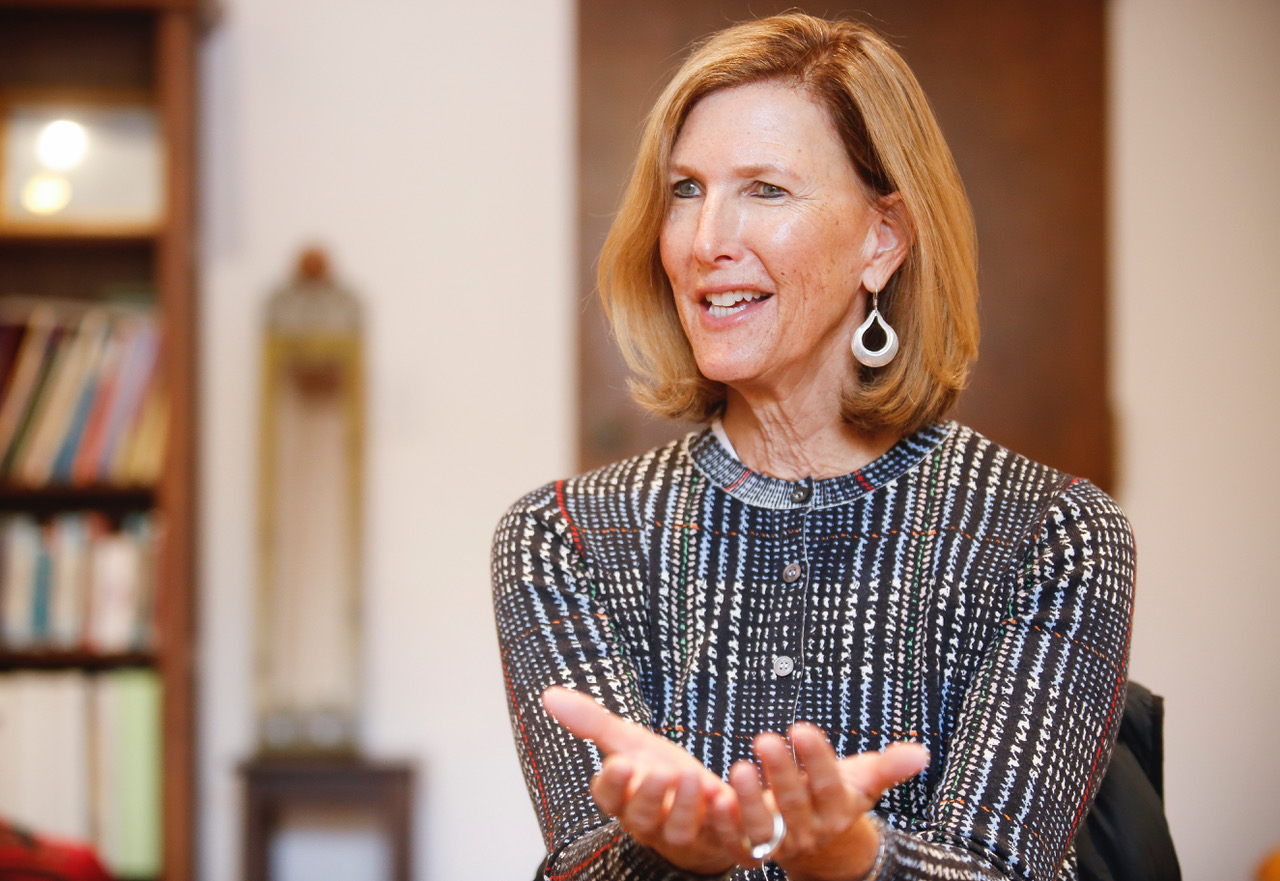Longtime friends and colleagues Deborah Harris and Jane Clarke have been leaders in developing infant mental health programs in New Mexico. Harris, an independently licensed social worker, and Clarke, whose background is in language and communication disorders, together developed the first Infant Team in New Mexico, created to serve infants and toddlers taken into protective custody. In addition, they serve as senior consultants for individuals and organizations responsible for caring and treating vulnerable infants and for making decision that impact infants and young children for the rest of their lives.


Clarke and Harris are intent on eradicating “the myth,” as they call it, that babies are incapable of remembering what they see or hear. On the contrary, Harris and Clarke assert that it is precisely those early experiences that are among the most significant and life-defining of early childhood.
The two consult directly with parents and babies, teach advanced clinical courses in infant and early childhood mental health, and provide training and supervision for agencies and practitioners here in New Mexico and across the United States.
Theirs is an interdisciplinary field that integrates new and emerging research on brain science with the latest in neurobiology and attachment theory. Early intervention is the key, they say, to healing a problem that too often goes unnoticed, unrecognized, and unacknowledged.
Harris and Clarke recently talked with Searchlight New Mexico about their work, unmasking the inner emotional lives of babies, and what they hope to still accomplish in the field of infant mental health care.
****
Q: I have to say, the first time I heard the expression “infant mental health,” it took me a bit off guard. Maybe because when I hear the words mental health I immediately think mental illness. Tell me, what is actually meant by the term?
DH: You are in step with many people, who don’t like the expression. Because instead of thinking about health it signifies pathology. The field came out of the mental health arena. But it is intended to be inclusive of infant well-being and the role that culture and community, developmental differences and innate capacities all play.
Q: For nervous new parents who may be reading this, how do you distinguish between a colicky, crying baby and infant mental health?
DH: In our definition, infant mental health is about supporting the relationship between caregiver and baby. Babies don’t exist alone, they exist in context, in relationship to someone. So, a baby may have colic, which may be hard for a parent. The question is, how do we support the caregiver to get to know the baby and find things that are successful and calming?
Q: Jane, can you speak to how your childhood affected the work you do?
JC: My father died when I was three, and it was very sudden. The recollection in the family is that I was there when my mother found out about it. It was an event that affected me in a profound way, but it was always thought that children don’t remember, they don’t need to process that.
As I got into this field, it became enlightening — the idea that babies remember even in utero. And how these early experiences that are bi-directional between the caregiver and the baby can really set up how they deal with stress throughout the rest of their life.
Q: The emerging brain research is so compelling. Like the fact that babies in utero actually recognize the language of the mother as soon as they’re born.
JC: Absolutely. It’s like being in a bad motel room. At 28 weeks [of pregnancy], the auditory system begins to come on line — the baby cannot only hear what’s going on, but they also pick up the emotional tone.
Dr. T. Berry Brazelton [the influential pediatrician and author who died in March] started one of the first tests of infants called the Neonatal Behavioral Assessment Scale. And what he would do was hold the baby on one side of him and the mother would sit on the other side. They would each call the baby’s name — and the baby will always turn toward the mother’s voice.
Q: That is so touching.
JC: It is touching. And it’s at this stage that the whole process of this very deep, lasting relationship between mother and baby begins. That is the place to catch it if we can.
You can imagine being homeless or experiencing domestic violence during pregnancy. The baby is able to pick up that kind of stress. So they come more stressed at birth. Which means they’re a little more challenging to care for. And without support, it can set up feelings in the caretaker that “my baby doesn’t love me.”
Q: In other words, prenatal stress can set up a lifetime of trauma?
DH: These babies that are high-risk, that have been prenatally stressed, they are not in optimal situations — due to parental mental illness, substance abuse, domestic violence. So when Jane talks about what babies pick up, it’s not just emotionally. It’s also in their neurological systems. Their response to stress results in a change of hormonal levels, and that has a lasting impact on the brain.
Q: What does a good day look like for the two of you?
DH: We’re trying to impact systems. So, a good day is when a judge is really interested, they get it, they make a decision that takes into account the impact of the experiences, often adverse, that this particular baby has had. A good day is when we have clinicians that we’re training who get it and feel supported in their work. A good day is when a parent and child have a moment of meeting — or, as Jane likes to say, meaning-making.
They’re on the same page. That’s how babies grow. They know they’ve been seen. It’s mirroring. So, they develop their sense of self in the context of being seen by their primary caregiver. That’s the beginning, the foundation of a relationship, attachment and a feeling of security.
Q: I imagine that kind of mirroring works both ways – for mother and child alike.
DH: Absolutely. I was working with a little boy who was in foster care. His mother had a severe alcohol problem. She could be mean. And he was very afraid of her. One day, we were looking at a video clip of their visit. Her voice started to rise and she got a look on her face. I froze the tape and asked, “What do you see happening here?” And she said: “He’s afraid of me! I never realized what my face looked like to him.” That was a huge a-ha moment for her, and it was a pivotal point in that case.
Q: But recognizing a problem isn’t always enough to change it.
JC: We know that parents who struggle with substance abuse and opioid addiction — that reward center that happens for the majority of parents — isn’t wired in the same way. It is just not that rewarding to have a baby need you, to change their diaper or soothe their crying. Because other things are getting responded to.
Q: In other words, a baby’s smile isn’t going to cut it.
DH: Maybe they aren’t even noticing it. They’re looking for other things to make them feel better, and this feels like a burden.
Q: Wave your magic wand. What would you like to see in the next few years?
DH: I’ve always wanted residential centers for parents and babies where we can recreate for the caregivers and the babies a secure enough base. So they’re not stressing about rent and, do we have a place to live, and if my children are removed I lose my housing, and when am I going to get food stamps?
There are very, very few treatment facilities that allow children. The only place in New Mexico where they do anything like this is short-term. And so we are just extending the separation time.
JC: It’s time to realize that we’re not only dealing with recovery. A lot of the parents we see, they need to be taught parenting behaviors in addition to recovery.
The baby and the parent are on different timelines. And the baby can’t wait until the parent is recovered.